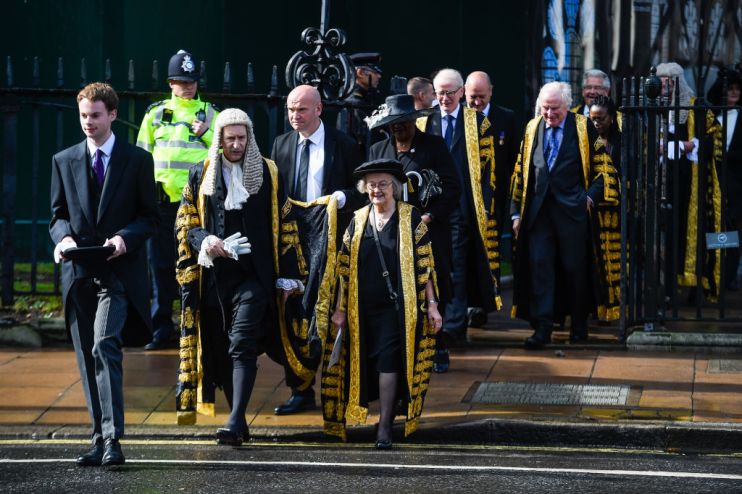Insurers need to capture the Covid-19 zeitgeist and go beyond expectations

As a communications professional, you rarely want your client and the words “the Supreme Court” to appear in the same sentence.
However, last week, the justices issued a 112-page judgement on the Financial Conduct Authority’s appeal asking for “clarification” on whether insurance companies were required to pay business interruption claims for companies which had been forced to cease trading as a result of Covid. Reader, they were. The claims for BI insurance were valid, and the sector must pay up.
Richard Leedham, partner at Mishcon de Reya and representative of the Hiscox Action Group, who joined the FCA appeal, said “The judgement should be a massive boost to all businesses reeling from a third lockdown who can now demand their claims are paid”. The point of law was that BI covered localised restrictions on business and non-property damage claims, without, as the insurers had claimed, this representing a unilateral rewriting of the terms of the indemnity.
Read more: Supreme Court rejects insurers’ claims in landmark business insurance case
The insurance industry finds itself in a fix. On a basic financial point, they will now need to honour a swathe of insurance claims which they had previously denied. The cost of this has been estimated at hundreds of millions of pounds. There is, however, a wider reputational aspect to consider.
Insurance companies have a difficult image to create and conserve. On the one hand, they want to be thought of as comforting and reassuring, the policy-holder’s friend, and make much of the seamlessness and ease of their services when something goes wrong. Leaky pipe? They’ll arrange for a plumber to come out as quickly as possible and deal with any upfront payments. Car crash? They’ll get you back on the road within days and arrange a replacement vehicle.
Look at their slogans: Aviva are “with you today, for a better tomorrow”. Hiscox “hope to create a small business community and help inspire you” with real-life tales of small businesses, though this court case will presumably not feature. Allianz declare boldly that “We secure your future”.
This hides an inevitable truth which many people never quite face up to. For an insurance company to make money, it must, by definition, pay out less (in policies) than it collects (in premiums). It must, therefore, take as strong a stance against redemption of a policy as it can get away with. There is no special dishonour in this. Insurance, like everything else, is a commercial transaction and the insurers exist to make a profit.
The Supreme Court ruling has exposed the insurance industry in the worst light. At a time when the economy is experiencing unprecedented strain because of the pandemic, and businesses are operating on a financial knife-edge, a number of insurers have demonstrated themselves to be mean-spirited and penny-pinching. James Ollerenshaw, a Spitalfields hairdresser, summed up the situation neatly: “The insurance industry needs to face up to the fact that it failed customers at their greatest moment of need, destroying companies, livelihoods and jobs”.
Read more: Hair Force Gone: Donald Trump says goodbye to Washington
The stance of the insurers is doubly unfortunate because the Covid-19 pandemic has inspired in the public a heightened sense of social responsibility. What was a bad joke when applied to the austerity policies of the early 2010s is now ringing much truer: we are all in this together.
Some companies—Waitrose, Marks and Spencer and Burger King spring to mind—have really caught the zeitgeist and have acted swiftly and decisively to help communities and industries. Burger King went so far as to encourage the patty-eating public to go to McDonald’s and other fast food chains, simply to keep the sector trading. The Spectator pulled off a publicity coup last summer by returning the financial assistance it had received from the government on the grounds that it didn’t need it, and was still profitable.
The insurance companies have been caught on the other side of this. They have seemed to attempt to profit from the pandemic, at the direct and literal expense of its customers whose businesses are facing extinction. Small businesses face a number of serious challenges to make it through Covid-19 alive, and this had not, before the Supreme Court ruling, been helpful.
What can they do? The first thing must be truth and authenticity. The Association of British Insurers commented: “We recognise this has been a particularly difficult time for many small businesses… we will continue to work together as an industry to ensure customers have the clarity they need”. Really? Forcing the matter all the way to the Supreme Court hardly seems helpful and recognisant of difficulties. Insurers must be upfront: they have lost, they accept that, and they will pay up as soon as they reasonably can.
An eye-catching gesture would also help to shore up their reputations. Perhaps significant reductions on premiums for small, independently owned businesses, or a period of free coverage for start-ups launched during the pandemic. Perhaps they could help a more general fund for financial relief. Anything along these lines would give them something to shout about.
Insurers should act and act quickly. This has been a serious stain on their conduct and corporate character. They need to show that they have absorbed the court verdict and make swift restitution; then find a meaningful gesture to publicise a new, socially responsible face. Remember, we’re all in this together.
Read more: Chancellor Rishi Sunak: The City could be set for a post-Brexit Big Bang 2.0